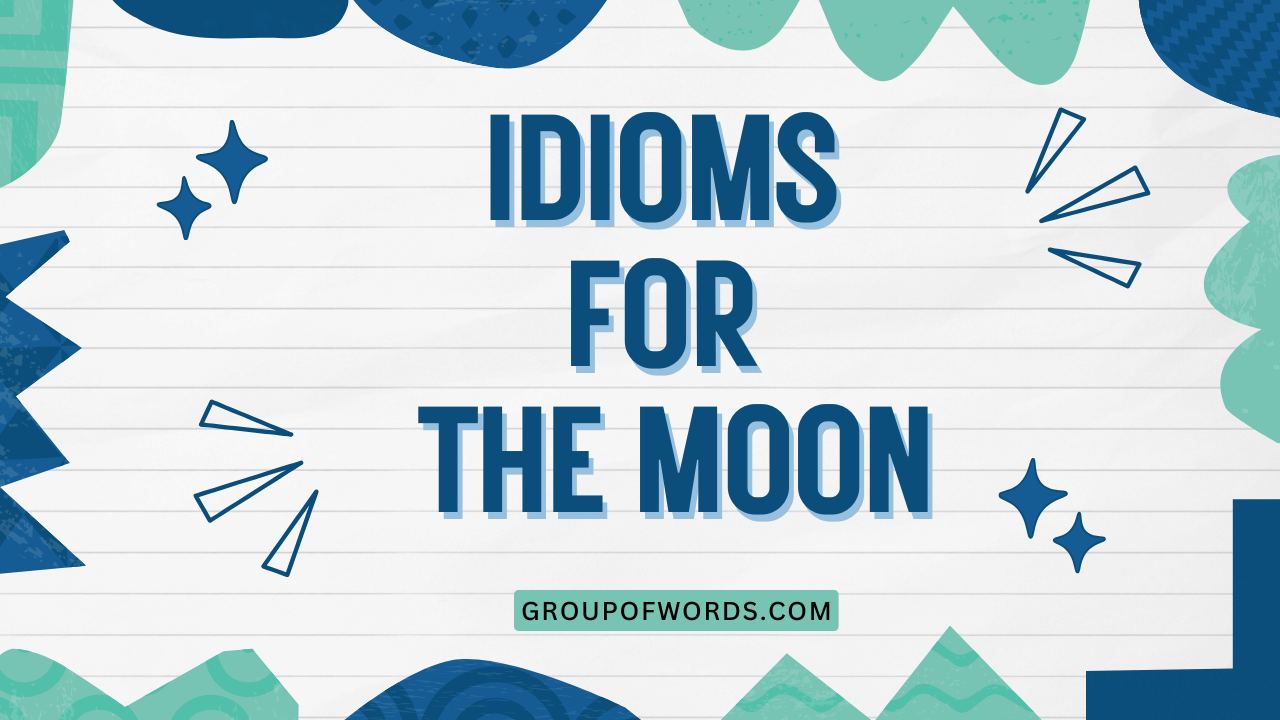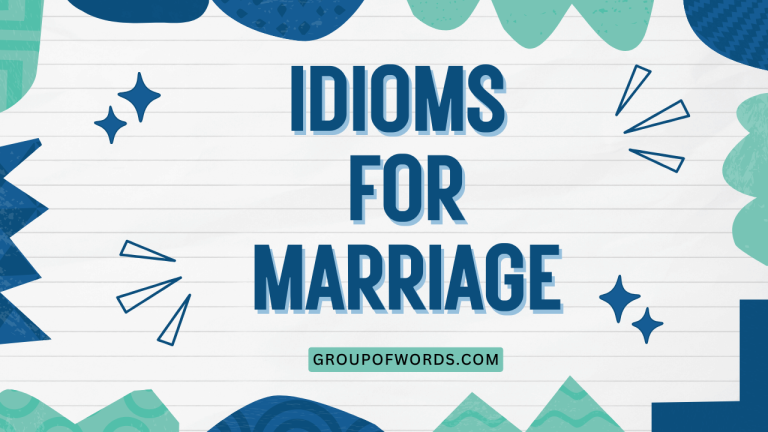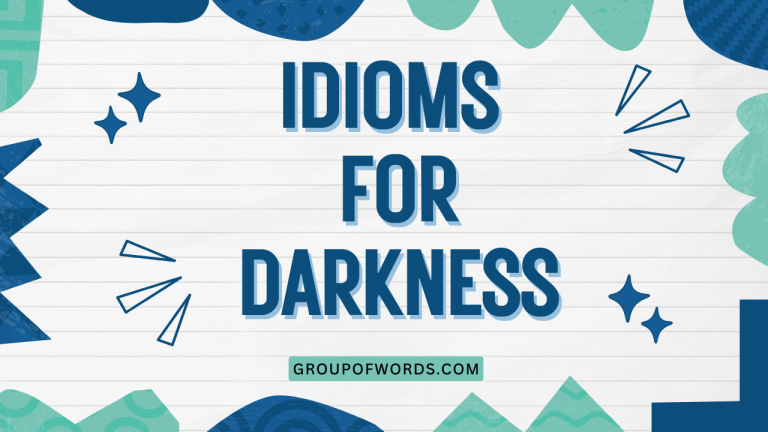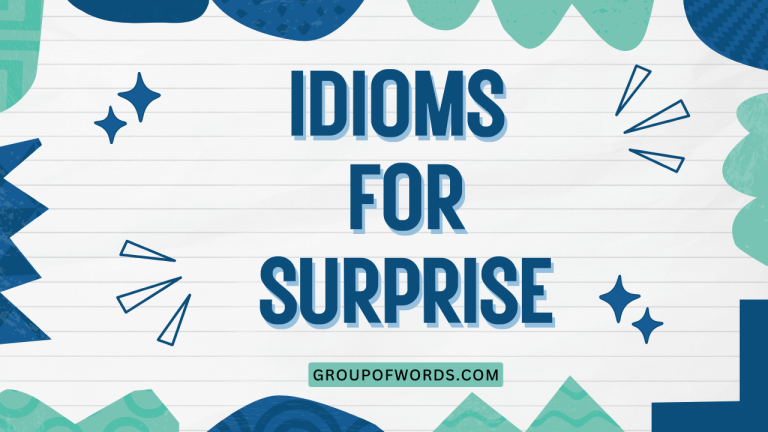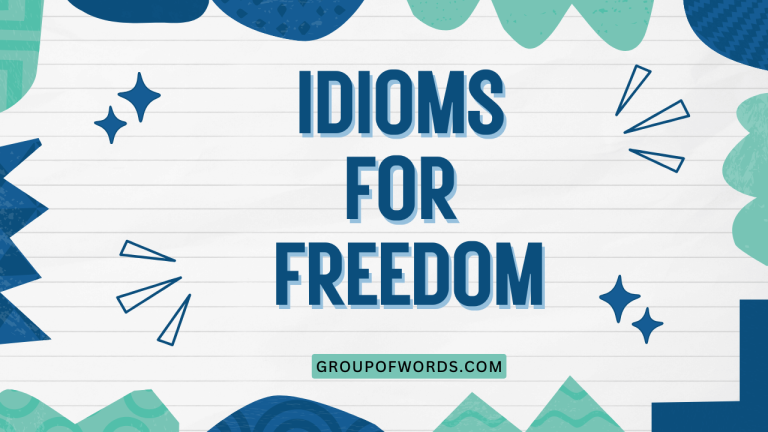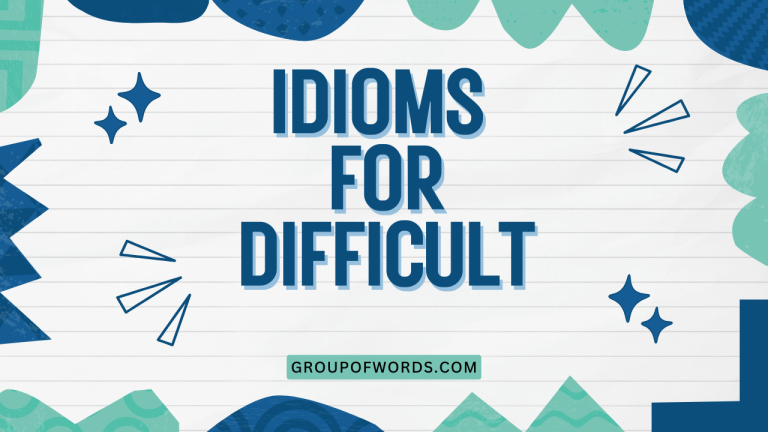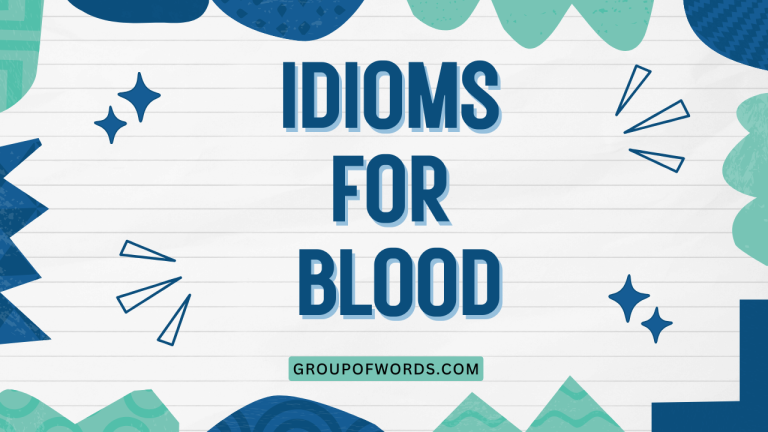Idioms for the Moon: A Comprehensive Guide
Idioms add color and depth to the English language, allowing speakers to express complex ideas in concise and imaginative ways. Understanding idioms, especially those related to the moon, enhances comprehension and fluency.
This article explores various idioms related to the moon, providing definitions, examples, and usage guidelines. This guide is perfect for English language learners, teachers, and anyone interested in enriching their vocabulary and understanding of idiomatic expressions.
Table of Contents
- Introduction
- Definition of Idioms and Moon Idioms
- Structural Breakdown of Moon Idioms
- Types and Categories of Moon Idioms
- Examples of Moon Idioms
- Usage Rules for Moon Idioms
- Common Mistakes with Moon Idioms
- Practice Exercises
- Advanced Topics: Figurative Language and Connotations
- FAQ Section
- Conclusion
Introduction
Idioms are phrases or expressions whose meanings cannot be understood from the literal definitions of the individual words. They add richness and nuance to language, making communication more vivid and engaging.
Moon idioms, specifically, draw upon the moon’s symbolism – its phases, its association with romance, and its perceived distance – to convey a wide range of meanings. Mastering these idioms enables a deeper appreciation of English literature, improves conversational skills, and fosters a more intuitive understanding of the language.
This article delves into the fascinating world of moon idioms, providing a comprehensive guide to their meanings, usage, and cultural significance.
Definition of Idioms and Moon Idioms
An idiom is a phrase or expression whose meaning is different from the literal meaning of the words it contains. Idioms are a fundamental part of language, adding color, humor, and cultural context to communication. They often reflect the history, values, and experiences of a particular culture or community.
Moon idioms are a subset of idioms that specifically use the moon as a central element. These phrases often evoke feelings of romance, mystery, changeability, or impossibility. The moon’s symbolic associations with these concepts make it a powerful and versatile element in idiomatic expressions.
Classification of Idioms
Idioms can be classified based on their structure, function, and the degree to which their meaning differs from the literal meaning of their component words. Some common classifications include:
- Phrasal Verbs: Idioms that consist of a verb and a preposition or adverb (e.g., “moon over”).
- Clichés: Overused idioms that have become commonplace (e.g., “once in a blue moon”).
- Proverbs: Short, well-known sayings that express a general truth or piece of advice (though not always idioms, some proverbs function idiomatically).
- Euphemisms: Idioms used to soften or replace a harsh or offensive term.
Function of Moon Idioms
Moon idioms serve various functions in language:
- Adding Emphasis: They can intensify a statement or emotion.
- Creating Imagery: They evoke vivid mental pictures and enhance descriptions.
- Expressing Nuance: They convey subtle shades of meaning that might be difficult to express directly.
- Connecting with Culture: They reflect shared cultural understandings and experiences.
Contexts for Using Moon Idioms
Moon idioms can be used in a variety of contexts, including:
- Literature: To add depth and symbolism to writing.
- Conversation: To express ideas in a creative and engaging way.
- Formal Writing: While generally less common, appropriate use can add flair.
- Speeches: To capture the audience’s attention and make points memorable.
Structural Breakdown of Moon Idioms
Moon idioms, like all idioms, consist of a combination of words that together create a specific meaning. Understanding their structure can help in deciphering their meaning and usage.
The structure typically involves nouns, verbs, and prepositions, often combined in unique and unexpected ways.
Noun Phrases
Many moon idioms center around noun phrases that include the word “moon.” These phrases often act as subjects or objects within a sentence, carrying the idiomatic meaning.
Example: “Once in a blue moon” – The noun phrase “blue moon” signifies a rare event.
Verb Phrases
Some moon idioms are structured as verb phrases, where a verb is combined with “moon” (or a related term) to create an idiomatic meaning.
Example: “To moon over someone” – The verb phrase “moon over” signifies to be romantically infatuated.
Prepositional Phrases
Prepositional phrases involving the moon can also form idioms, often indicating a relationship or condition related to the moon’s influence.
Example: “Shoot for the moon” – The prepositional phrase implies aiming for something highly ambitious.
Types and Categories of Moon Idioms
Moon idioms can be categorized based on their meaning, connotation, and the specific aspect of the moon they reference. Here are some common categories:
Idioms of Rarity and Impossibility
These idioms use the moon to signify something that happens very infrequently or is virtually impossible.
Example: “Once in a blue moon”
Idioms of Romance and Infatuation
These idioms associate the moon with romantic feelings, dreams, and infatuation.
Example: “To moon over someone”
Idioms of Ambition and Dreams
These idioms use the moon to represent high goals, aspirations, and the pursuit of dreams.
Example: “Shoot for the moon”
Idioms of Changeability and Instability
These idioms draw upon the moon’s phases to represent things that are subject to change or are unreliable.
Example: “Promises like the moon”
Examples of Moon Idioms
The following tables provide detailed examples of moon idioms, categorized by their primary meaning. Each example includes the idiom, its definition, and illustrative sentences.
Rarity and Impossibility Idioms
Below is a table illustrating idioms that describe rarity and impossibility. Each example includes a definition and illustrative sentences to provide context.
| Idiom | Definition | Example Sentences |
|---|---|---|
| Once in a blue moon | Very rarely; almost never. | I only go to the cinema once in a blue moon. She visits her family once in a blue moon. |
| Ask for the moon | To ask for something that is nearly impossible to get. | He’s asking for the moon if he thinks he’ll get a promotion after only six months. Demanding a perfect solution is like asking for the moon. |
| Promise someone the moon | To make extravagant promises (often insincere) that are unlikely to be fulfilled. | Politicians often promise voters the moon during election campaigns. He promised her the moon, but she knew he couldn’t deliver. |
| Cry for the moon | To ask for something impossible or unattainable; to be overly demanding. | The child was crying for the moon when he demanded a pony for his birthday. It’s useless to cry for the moon; focus on what’s achievable. |
| Reach for the moon | To try to achieve something extremely difficult or impossible. | While it’s good to be ambitious, sometimes you’re just reaching for the moon. He knew it was a long shot, but he decided to reach for the moon anyway. |
| Have a face like the man in the moon | To have a face that is scarred, pockmarked, or full of blemishes. | After years of battling acne, he felt like he had a face like the man in the moon. The old miner’s face had a face like the man in the moon from years of exposure. |
| When the moon turns to green cheese | Something that will never happen; an expression of disbelief. | He said he’d pay me back tomorrow, but that’ll happen when the moon turns to green cheese. She promised to clean her room, but that’ll happen when the moon turns to green cheese. |
| Think the moon is made of green cheese | To be naive or gullible; to believe something absurd. | Only someone who thinks the moon is made of green cheese would believe that story. He must think the moon is made of green cheese if he trusts everything he reads online. |
| Climb for the moon | Similar to reach for the moon, this means to attempt something nearly impossible. | The company is climbing for the moon with its unrealistic sales targets. She’s climbing for the moon if she thinks she can finish the project in one day. |
| More changes than the moon | Something that changes very frequently; extremely changeable. | His moods have more changes than the moon; you never know what to expect. The stock market has more changes than the moon these days. |
| Love someone to the moon and back | To love someone immeasurably; an expression of deep affection. | I love my children to the moon and back. He told her he loved her to the moon and back on their anniversary. |
| Fly me to the moon | A romantic expression, often used as a song title, representing a desire to escape to a romantic, idealized place. | The song “Fly Me to the Moon” is a classic love song. They danced to “Fly Me to the Moon” at their wedding. |
| Lunar eclipse of the heart | A playful or dramatic way to describe heartbreak or disappointment, referencing a lunar eclipse. | After the breakup, she felt like she was experiencing a lunar eclipse of the heart. His rejection caused a lunar eclipse of her heart. |
| A shot at the moon | An attempt to achieve something very difficult or unlikely. | Starting a new business during a recession is definitely a shot at the moon. He knew it was a long shot, but he decided to take a shot at the moon. |
| Under the same moon | Living in the same world or experiencing the same reality, despite differences. | Even though we live in different countries, we’re all living under the same moon. Despite their different backgrounds, they realized they were all under the same moon. |
| Moonshot | An ambitious, exploratory and ground-breaking project or undertaking. | The company’s new project is a real moonshot, but if it works, it could revolutionize the industry. Their goal to cure cancer is a moonshot. |
| Mooncalf | A foolish, dreamy person; someone born under the influence of the moon. | He’s such a mooncalf; he’s always lost in his own thoughts. She was often called a mooncalf because of her absent-mindedness. |
| Blue moon effect | The psychological effect of a rare event standing out in memory, causing overestimation of its frequency. | Due to the blue moon effect, people tend to overestimate how often they win the lottery. The blue moon effect can distort our perception of how often certain events occur. |
| Many moons ago | A long time ago; in the distant past. | Many moons ago, before the city was built, this was all farmland. I met her many moons ago at a summer festival. |
| To be over the moon | To be extremely happy or delighted. | She was over the moon when she got accepted into her dream university. They were over the moon about the birth of their first child. |
Romance and Infatuation Idioms
The table below showcases idioms associated with romance and infatuation. Each idiom is defined and illustrated with example sentences to clarify its meaning in context.
| Idiom | Definition | Example Sentences |
|---|---|---|
| To moon over someone | To be romantically infatuated with someone; to daydream about them. | She’s been mooning over him ever since they met. He spends hours mooning over her picture. |
| Moonstruck | Mentally affected by the moon; romantically or emotionally overwhelmed. | He was completely moonstruck by her beauty. The romantic setting made them both feel moonstruck. |
| Under the moon’s spell | Being captivated or entranced by a romantic or magical atmosphere. | They danced under the moon’s spell, lost in each other’s eyes. The city seemed to be under the moon’s spell on that magical night. |
| Mad as the moon | Eccentric, whimsical, or slightly crazy in a charming or romantic way. | She’s a bit mad as the moon, but that’s what I love about her. His ideas are often mad as the moon, but sometimes they’re brilliant. |
| Moonlight and roses | A romantic or idealized situation; a cliché for romance. | Their first date was all moonlight and roses. He planned a night of moonlight and roses to propose to her. |
| Catch the moonbeams | To dream or fantasize about something romantic or unattainable. | She spends her evenings catching moonbeams, dreaming of a perfect love. He’s always catching moonbeams instead of facing reality. |
| Moon-eyed | Lovestruck or dreamy-eyed. | She gave him a moon-eyed look when he walked into the room. He was moon-eyed and couldn’t focus on anything else. |
| Crying for the moon | Pining for something unattainable, often in a romantic context. | She was crying for the moon, longing for a love that could never be. He was always crying for the moon, chasing after impossible dreams. |
| A moonlit stroll | A romantic walk taken under the light of the moon. | They enjoyed a moonlit stroll along the beach. A moonlit stroll is the perfect way to end a romantic evening. |
| Under a lover’s moon | Experiencing a time of romance or infatuation. | They were under a lover’s moon during their honeymoon. The couple was clearly under a lover’s moon, inseparable and infatuated. |
| Painted by the moon | A description of something beautiful and ethereal, as if touched by moonlight. | Her face, painted by the moon, glowed in the darkness. The garden, painted by the moon, looked magical. |
| Stealing the moon | Attempting to win someone’s heart, often in a competitive or audacious way. | He’s trying to steal the moon by impressing her with grand gestures. She’s determined to steal the moon and win his affection. |
| The moon is full of love tonight | A poetic expression indicating a night ripe with romantic potential. | The air was filled with anticipation; the moon is full of love tonight. Under the stars, you could feel that the moon is full of love tonight. |
| To give someone the moon | To offer someone everything they desire, especially in a romantic context. | He would give her the moon if he could. She felt like he would give her the moon. |
| Written in the stars and moon | A romantic notion that a relationship or event is predestined. | Their love story felt like it was written in the stars and moon. It seemed as if their meeting was written in the stars and moon. |
| Chasing moonbeams | Pursuing unrealistic or romantic dreams. | She spends her days chasing moonbeams instead of focusing on practical matters. He’s always chasing moonbeams, hoping for a love that doesn’t exist. |
| Lost in the moonlight | Enchanted or captivated by a romantic atmosphere. | They were lost in the moonlight, oblivious to the world around them. The music and the setting left them lost in the moonlight. |
| Moon-kissed | Touched by the beauty and magic of the moon. | Her skin looked moon-kissed in the soft light. The garden was moon-kissed, bathed in a silvery glow. |
| Silhouettes in the moonlight | A romantic image evoking intimacy and mystery. | They stood as silhouettes in the moonlight, sharing a quiet moment. He watched their silhouettes in the moonlight as they walked hand in hand. |
| The moon pulls on my heart | A poetic way to describe deep emotional longing or romantic yearning. | When I’m far away, the moon pulls on my heart, reminding me of home. Her absence made him feel like the moon pulls on my heart. |
Ambition and Dreams Idioms
This table contains idioms that symbolize ambition and dreams. Each idiom is defined and illustrated with example sentences to show its appropriate use.
| Idiom | Definition | Example Sentences |
|---|---|---|
| Shoot for the moon | To aim for a very high goal; to be ambitious. | Even though it’s a difficult project, we should shoot for the moon. He’s always encouraged his children to shoot for the moon. |
| Reach for the stars, even if you hit the moon | Even if you don’t achieve your ultimate goal, you’ll still accomplish something significant. | Reach for the stars, even if you hit the moon; you’ll still be better off than if you hadn’t tried. She always tells her students to reach for the stars, even if you hit the moon. |
| If you reach for the stars you may hit the moon | Similar to the above, highlighting the value of aiming high. | If you reach for the stars you may hit the moon, so don’t be afraid to dream big. He believes that if you reach for the stars you may hit the moon. |
| Set your sights on the moon | To set a very ambitious goal. | He set his sights on the moon and worked tirelessly to achieve his dream. She encouraged her team to set their sights on the moon and innovate. |
| Dreaming of the moon | To have grand ambitions or fantasies. | He spends his days dreaming of the moon instead of working towards a realistic goal. She was always dreaming of the moon, imagining a life of luxury and fame. |
| Harvest the moon | To achieve something seemingly impossible through creativity and innovation. | The company managed to harvest the moon by developing a groundbreaking technology. They tried to harvest the moon with their ambitious business plan. |
| The moon is the limit | There are no boundaries to what one can achieve. | With hard work and dedication, the moon is the limit. She believes that for her students, the moon is the limit. |
| Aiming for the moon | Trying to achieve something extremely difficult or ambitious. | They are aiming for the moon with their plan to revolutionize the industry. His ambition was clear; he was aiming for the moon. |
| Have moonbeams in your eyes | To be full of dreams and aspirations. | She has moonbeams in her eyes, always dreaming of a better future. He saw the moonbeams in her eyes and knew she was destined for great things. |
| To chase the moon | To pursue a distant and perhaps unattainable goal. | He’s always chasing the moon, never satisfied with what he has. She realized she had been chasing the moon for years and decided to change her focus. |
| To hitch a ride to the moon | To find an opportunity to achieve something great. | He hitched a ride to the moon by joining a successful startup. She was determined to hitch a ride to the moon and make her mark on the world. |
| To paint the moon with your dreams | To express your dreams and aspirations creatively. | She wanted to paint the moon with her dreams through her art. He encouraged his students to paint the moon with their dreams. |
| Moonwalking to success | Achieving success in a smooth and impressive manner, often with a hint of showmanship. | He was moonwalking to success with his innovative business strategies. She was moonwalking to success, effortlessly climbing the corporate ladder. |
| The moon as a stepping stone | Using something as a means to reach a higher goal. | He saw his current job as the moon as a stepping stone to his ultimate career. She used her scholarship as the moon as a stepping stone to a brighter future. |
| Planting dreams on the moon | Having ambitious and futuristic goals. | They were planting dreams on the moon with their plans for space colonization. He was planting dreams on the moon, envisioning a world beyond Earth. |
| Reaching for the lunar horizon | Striving for something beyond the ordinary, pushing boundaries. | The scientists were reaching for the lunar horizon with their groundbreaking research. She was reaching for the lunar horizon, aiming to surpass all expectations. |
| Moon-bound ambition | An ambition that is set very high, almost impossibly so. | His moon-bound ambition drove him to work day and night. She had a moon-bound ambition to become a world-renowned scientist. |
| To dream under a lunar sky | To have hopeful and expansive dreams. | They would sit together and dream under a lunar sky, envisioning a better world. He loved to dream under a lunar sky, letting his imagination run wild. |
| To build castles on the moon | To make plans that are unrealistic or based on fantasy. | He was building castles on the moon instead of focusing on practical matters. She realized she had been building castles on the moon and decided to come back to reality. |
| To touch the moon with your spirit | To achieve a state of spiritual or creative fulfillment. | She felt like she could touch the moon with her spirit through her music. He wanted to touch the moon with his spirit by making a positive impact on the world. |
Usage Rules for Moon Idioms
Using moon idioms correctly requires understanding their specific meanings and contexts. Here are some key usage rules to keep in mind:
- Context is Key: Always consider the context in which you are using an idiom. Ensure that the idiom’s meaning aligns with the overall message you are trying to convey.
- Audience Awareness: Be mindful of your audience. Some idioms may not be familiar to non-native speakers or people from different cultural backgrounds.
- Formality: Most idioms are informal and should be used sparingly in formal writing or presentations.
- Avoid Overuse: While idioms can add color to your language, overuse can make your writing or speech sound unnatural or cliché.
Literal vs. Idiomatic Meaning
It’s crucial to distinguish between the literal and idiomatic meanings of a phrase. The literal meaning is the straightforward interpretation of the words, while the idiomatic meaning is the figurative or symbolic interpretation.
Example:
- Literal: “The moon is in the sky.” (A factual statement about the moon’s location.)
- Idiomatic: “Promise someone the moon” (To make extravagant, often insincere, promises.)
Grammatical Structure and Tense
Pay attention to the grammatical structure of the idiom and ensure it fits correctly within the sentence. Many idioms can be conjugated or inflected to fit different tenses or grammatical contexts.
Example:
- “He moons over her every day.” (Present tense)
- “She mooned over him when they first met.” (Past tense)
Cultural Sensitivity
Be aware that some idioms may have cultural connotations or origins that are not universally understood. Avoid using idioms that could be offensive or insensitive to certain groups of people.
Common Mistakes with Moon Idioms
Using idioms incorrectly can lead to confusion or miscommunication. Here are some common mistakes to avoid:
- Misinterpreting the Meaning: Assuming the idiom’s meaning is based on the literal definitions of the words.
- Using the Wrong Idiom: Selecting an idiom that does not accurately convey the intended meaning.
- Incorrect Grammatical Usage: Using the idiom in the wrong tense or grammatical context.
- Overusing Idioms: Cluttering your language with too many idioms, making it sound unnatural.
Here’s a table illustrating some common mistakes and their corrections:
| Incorrect | Correct | Explanation |
|---|---|---|
| He asked for the sun. | He asked for the moon. | The correct idiom is “ask for the moon,” not “ask for the sun.” |
| She is mooning with him. | She is mooning over him. | The correct idiom is “moon over,” not “moon with.” |
| Once at a blue moon. | Once in a blue moon. | The correct idiom is “once in a blue moon,” not “once at a blue moon.” |
| Reach for the moon, but you can’t get it. | Reach for the stars, even if you hit the moon. | The full idiom is “Reach for the stars, even if you hit the moon,” which conveys the idea of aiming high. |
Practice Exercises
Test your understanding of moon idioms with the following exercises. Choose the correct idiom to complete each sentence, or explain the meaning of the idiom in the given context.
Exercise 1: Fill in the Blanks
Complete the following sentences with the appropriate moon idiom from the list below.
Idiom List: once in a blue moon, moon over, shoot for the moon, promised her the moon, over the moon
| Question | Answer |
|---|---|
| 1. She was ________ when she got the job offer. | over the moon |
| 2. He ________, but she knew he couldn’t deliver on his promises. | promised her the moon |
| 3. I only go to that restaurant ________. | once in a blue moon |
| 4. It’s important to ________, even if you don’t achieve all your goals. | shoot for the moon |
| 5. She’s been ________ him ever since they met at the party. | mooning over |
| 6. Opportunities like this come ________. | once in a blue moon |
| 7. He tends to ________ unrealistic goals. | shoot for the moon |
| 8. They were ________ about their wedding day. | over the moon |
| 9. He ________ to get her to agree to the deal, but many of his promises were empty. | promised her the moon |
| 10. She can’t stop ________ her favorite celebrity. | mooning over |
Exercise 2: Meaning Explanation
Explain the meaning of the following moon idioms in your own words.
| Idiom | Explanation |
|---|---|
| 1. Ask for the moon | To request something that is nearly impossible to obtain or achieve. |
| 2. Crying for the moon | To desire something impossible or unattainable, often leading to frustration. |
| 3. Fly me to the moon | A romantic expression indicating a desire to escape to an idealized place or situation. |
| 4. Many moons ago | A long time ago; in the distant past. |
| 5. Under the same moon | Living in the same world or experiencing the same reality, despite differences. |
| 6. Moonshot | An ambitious, exploratory and ground-breaking project or undertaking. |
| 7. Love someone to the moon and back | To love someone immeasurably; an expression of deep affection. |
| 8. To paint the moon with your dreams | To express your dreams and aspirations creatively. |
| 9. Moonwalking to success | Achieving success in a smooth and impressive manner, often with a hint of showmanship. |
| 10. Building castles on the moon | To make plans that are unrealistic or based on fantasy. |
Exercise 3: Sentence Completion
Complete the following sentences using the correct form of the idiom provided.
Idiom: Moon over
| Question | Answer |
|---|---|
| 1. She used to ________ the lead singer of the band. | moon over |
| 2. He spends hours ________ her photos on social media. | mooning over |
| 3. They ________ each other during their high school years. | mooned over |
| 4. It’s not healthy to ________ someone you’ve never met. | moon over |
| 5. She couldn’t help but ________ him, despite knowing it was unrealistic. | moon over |
| 6. He admitted that he had been ________ her for years. | mooning over |
| 7. The teenagers were ________ the latest pop idol. | mooning over |
| 8. Stop ________ him and focus on your own life. | mooning over |
| 9. She tried not to ________ him anymore after the rejection. | moon over |
| 10. He was constantly ________ her from afar. | mooning over |
Advanced Topics: Figurative Language and Connotations
For advanced learners, understanding the nuances of figurative language and the connotations associated with moon idioms can greatly enhance their comprehension and usage. Figurative language, such as metaphor and simile, often underlies the meaning of idioms, while connotations add layers of emotional and cultural meaning.
Metaphor and Simile
Moon idioms often employ metaphor and simile to create vivid imagery and convey abstract concepts.
Example:
- Metaphor: “Moonshot” – A metaphor for
a highly ambitious and challenging project, drawing a comparison to the difficulty of reaching the moon.
- Simile: “Promises like the moon” – A simile comparing promises to the moon, emphasizing their changeability and unreliability.
Connotations and Emotional Impact
The moon carries various connotations, including romance, mystery, change, and unattainability. These connotations contribute to the emotional impact of moon idioms.
Example:
- “To moon over someone” – Conveys a sense of romantic infatuation and dreamy longing.
- “Once in a blue moon” – Suggests rarity and the passage of time, often with a hint of nostalgia.
Cultural References and Symbolism
Many moon idioms are rooted in cultural references and symbolic associations with the moon. Understanding these references can deepen one’s appreciation of the idioms.
Example:
- “The man in the moon” – Refers to the perceived image of a face in the moon’s surface, a common figure in folklore and mythology.
- “Lunar eclipse of the heart” – References a celestial event to symbolize a painful emotional experience.
FAQ Section
Q: Why are there so many idioms about the moon?
A: The moon has been a source of fascination and inspiration for centuries. Its phases, its association with romance and mystery, and its perceived distance make it a versatile symbol for expressing a wide range of ideas and emotions.
Q: Is it okay to use moon idioms in formal writing?
A: Generally, moon idioms are more appropriate for informal contexts, such as conversations or creative writing. In formal writing, it’s best to use them sparingly and only when they effectively enhance your message.
Q: How can I learn more idioms?
A: The best way to learn idioms is through exposure to the language. Read books, watch movies, listen to podcasts, and pay attention to how native speakers use idioms in conversation.
You can also use online resources and idiom dictionaries to expand your knowledge.
Q: Are moon idioms universal across all cultures?
A: No, moon idioms are not universal. While some idioms may have equivalents in other languages, many are specific to English-speaking cultures.
It’s important to be aware of cultural differences when using idioms.
Q: What’s the difference between “moonshot” and “shoot for the moon”?
A: “Shoot for the moon” is a general idiom meaning to aim for a very high goal. “Moonshot,” on the other hand, typically refers to a specific, highly ambitious project or undertaking, often in the context of technology or innovation.
Q: How do I avoid misusing idioms?
A: To avoid misusing idioms, make sure you understand their specific meanings and contexts. Practice using them in sentences and get feedback from native speakers.
If you’re unsure about an idiom’s meaning, it’s best to avoid using it.
Q: Is there a difference between “moonstruck” and “lovestruck”?
A: “Lovestruck” is a more common and general term for being overwhelmed by love. “Moonstruck” implies a similar state but often with a hint of whimsy, magic, or being slightly out of touch with reality due to romantic feelings.
Q: How can I teach moon idioms to ESL students?
A: When teaching moon idioms to ESL students, provide clear definitions, examples, and visual aids. Use real-life scenarios to illustrate the idioms’ meanings and encourage students to practice using them in conversation and writing.
Q: What are some resources for finding more moon idioms?
A: You can find more moon idioms in idiom dictionaries, online resources for English language learners, and collections of figurative language. Also, pay attention to how the moon is used in literature, songs, and movies.
Q: Can idioms change over time?
A: Yes, idioms can evolve and change over time. New idioms can emerge, and the meanings of existing idioms can shift.
Language is dynamic, and idioms are a reflection of that dynamism.
Conclusion
Moon idioms offer a fascinating glimpse into the creative and expressive nature of the English language. By understanding their meanings, usage rules, and cultural connotations, you can enhance your communication skills and gain a deeper appreciation of idiomatic expressions.
Whether you’re aiming for the moon or simply mooning over a loved one, these idioms provide a colorful and evocative way to convey your thoughts and feelings. Continue to explore and practice using these idioms to enrich your vocabulary and master the art of figurative language.
